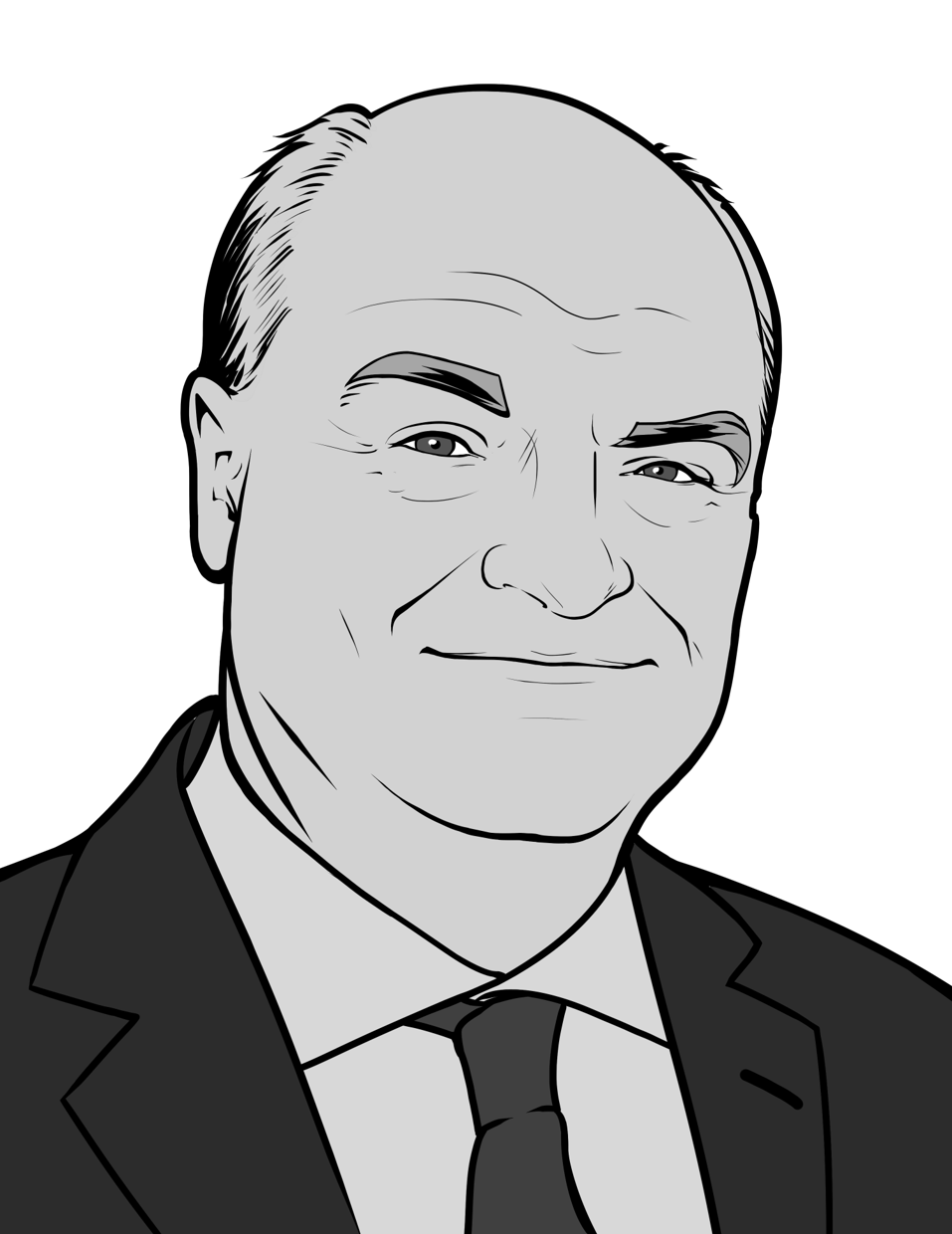The Progress Group
Driving progress by sharing knowledge and experience with the market
Regulatory reform is the primary driver of progress but it is not the sole one. Progress may also result when stakeholders understand that the voluntary improvement of procedure can further the pursuit of shared objectives. Put another way, progress is made possible by compliance not only with the letter of the law but the spirit of it, too. That is why we consider it imperative that stakeholders have opportunities to come together, discuss issues, and share their knowledge and experience with the market.
Each Progress Group meeting comprises a diverse assembly of thought leaders, invited by SquareWell, who combine recognized expertise across a range of fields. Participants can freely discuss the corporate and investor landscapes as well as environmental, social and governance (ESG) factors, and provide objective and actionable advice to the market. The Progress Group meets periodically with the aim of publishing a concise report.
Submit your topic for future discussion or let us know if you would like to participate,
by emailing marketing@squarewell-partners.com
The title “Stewardship: Every Voice Counts!” plays on the familiar phrase “every vote counts,” often used in activism campaigns to encourage shareholder participation in voting. In this context, the title emphasizes that stewardship isn’t just about casting a vote— it’s about recognizing that every investor’s voice and perspective are vital in shaping the direction and governance of a company. Just as every vote matters in an election, every investor’s input and engagement are crucial to responsible corporate governance that
aims to create value for all stakeholders.
This emphasis on the importance of every voice becomes even more relevant with the rise of passive investment strategies, which have introduced low-cost investment solutions and made investing in publicly listed companies more accessible. Unlike active managers who can choose their investments and sell off underperforming stocks, passive investors are obligated to hold the stocks within a given index. They don’t choose to invest in these companies, nor do they have the choice to divest. This constraint shifts their focus in stewardship; unable to exit a position, passive investors instead work to influence and improve the companies they own, driving long-term value through multiple levers, including interrogation of environmental and social factors, and ensuring better governance. In this landscape, the importance of every investor’s voice becomes crucial as both passive and active investors play distinct yet complementary roles in the stewardship ecosystem.
In line with this, our discussion with the Progress Group participants identified two key divergences between the stewardship activities of active managers and passive investors: (1) Treatment of Performance (both in the sense of financial, and non-financial) and (2) Available Escalations. These differences mean that passive investors are reliant on active managers to complete their stewardship mandate; passive investors need active managers to identify companies that are failing to create and/or protect long-term shareholder value through escalations – actions often considered “activist” – so that engagement and votes of passive investors can be mobilized to enable warranted change. This interdependency defines an important mechanism which functions when active managers flag continued relative underperformance, and passive managers act when these situations are brought to their attention. Failure of this mechanism, either by active or passive managers, erodes accountability, and increases a company’s vulnerability to becoming a target of aggressive activism or, in the case of financial underperformance, an unsolicited hostile takeover.








Assets in sustainable funds hit a record high of USD 1,258 billion as of the end of September 2020, with Europe surpassing the USD 1 trillion mark according to Morningstar’s research. The increased integration of Environmental, Social and Governance (ESG) factors into investment decision-making, whether it be for active or passive investment styles, has made the quality and availability of well-structured and digestible data provided by ESG rating and data agencies ever more important.
The growing influence of ESG data and ratings on the allocation of capital will undoubtedly bring with it increased scrutiny. Two main areas that have drawn media attention and investor criticism towards ESG ratings providers are: (1) their focus on past performance and lack of predictive value over future performance; and (2) the sometimes-diverging opinions of ESG ratings providers for the same company.
The lack of global reporting standards and agreement on what should be deemed as material for each sector has led to ESG data and ratings providers each adopting their own methodologies and processes, making it difficult for companies to manage their narrative on sustainability and determine how best to allocate internal resources regarding sustainability reporting. Further complicating the landscape for companies is the fact that a growing number of investors are developing their own ESG ratings by leveraging multiple data sources.
Given the increasing importance of ESG data and ratings, for this Progress Group SquareWell Partners (“SquareWell”) interviewed representatives from companies, institutional investors, ESG ratings and data providers, and academia. We have split the Progress Group report into two sections where we provide: (1) an overview of the ESG data and ratings landscape; and (2) key takeaways for companies to navigate this increasingly complex market force.












Who will get the corner office? In the lifetime of a company, there are few questions that will prove as decisive for its future success – or failure – as this one. The choice of the new leader will probably be the most critical decision that board members will have to make during their tenure. The new Chief Executive Officer (CEO) will essentially review the company’s strategy and roadmap as well as shape the management team and corporate culture for the years to come. Their ability, skills, experience and vision will be critical in making sure that the company is able to successfully execute its long-term strategy while negotiating all the hiccups, setbacks and potential market crises. As management quality remains one of the key factors for fundamental investors, the profile of the new leader will directly impact upon the valuation of the company. Academic research has evidenced that companies that are not ready to appoint a successor in a timely manner will lose an average of $1.8 billion in shareholder value. The longer the process, the worse they subsequently perform relative to their peers.
Given all of the above, one can understand why getting the CEO succession plan right is of critical importance. The relative absence of disclosure by companies on this topic may therefore come as a surprise. The last 30 years of corporate governance evolution, including the empowerment of shareholders and the rise of stewardship, have had surprisingly little impact in this regard. The cynics among us would see this as confirmation of the unpreparedness of companies and boards, while others would justify this opacity with the necessary confidential nature of succession plans. For this issue of the Progress Group, SquareWell Partners decided to focus on this topic to understand how succession planning has evolved, what a good process looks like and how companies could improve their communication with shareholders on this critical matter. Our discussions have certainly revealed a range of practices, approach and views.




For this issue of the Progress Group, we wanted to focus on executive pay, one of the most hotly debated corporate governance topics being discussed globally by all stakeholders. With this in mind, we spoke to a number of leading global investors to gain their insight into why executive pay remains a perennial topic on the engagement agenda, the main concerns surrounding executive pay, how they tackle the problem at the companies which they invest in, and the different ways they expect companies to respond to their concerns.
Contrary to our belief that there may be fatigue around the issue of executive pay, we found that investors outlined a growing motivation to step up engagement with a clear demand to talk to board members as the people who can explain why a chief executive is given a particular pay package. Furthermore, the stewardship contacts we spoke with at top global investors outlined the marked interest of portfolio managers in evaluating executive pay packages to ensure that the performance measures selected and targets set are in line with what the companies communicate to the market.









Changes to your investor base are natural – holdings fluctuate daily – sometimes even amongst your top investors. And while you, as members of the C-suite or investor relations officers (IROs), are in regular dialogue with your shareholders, sometimes you don’t have much insight as to why certain investors decrease their exposure to your stock. You also often don’t have much, if any, warning when this is going to happen.
This persistent lack of clarity led us to talk with a number of portfolio managers (PMs) to see how much information we could unpack and whether there were any lessons that IROs and their C-suite colleagues could learn in order to mitigate against the selling off of positions. Despite the fact that the PMs with whom we spoke had different strategies – everything from best-in-class ESG analysis to price-driven quants – we garnered some remarkable commonalities across their thinking. Looking at these, it also becomes clear that there are tangible steps that IROs and management can take to more effectively communicate with the market and their current and potential investors.





Ten years on from the financial crisis, much progress has been made in the dialogue between companies and investors, but there is still a sense that the two sides are speaking different languages; the gap between them has not yet been bridged.
We spoke with a number of key players around the world on both sides of the table to get their take on where we are in the engagement landscape today, where we should be in five years’ time, and what changes need to happen for us to get there.








